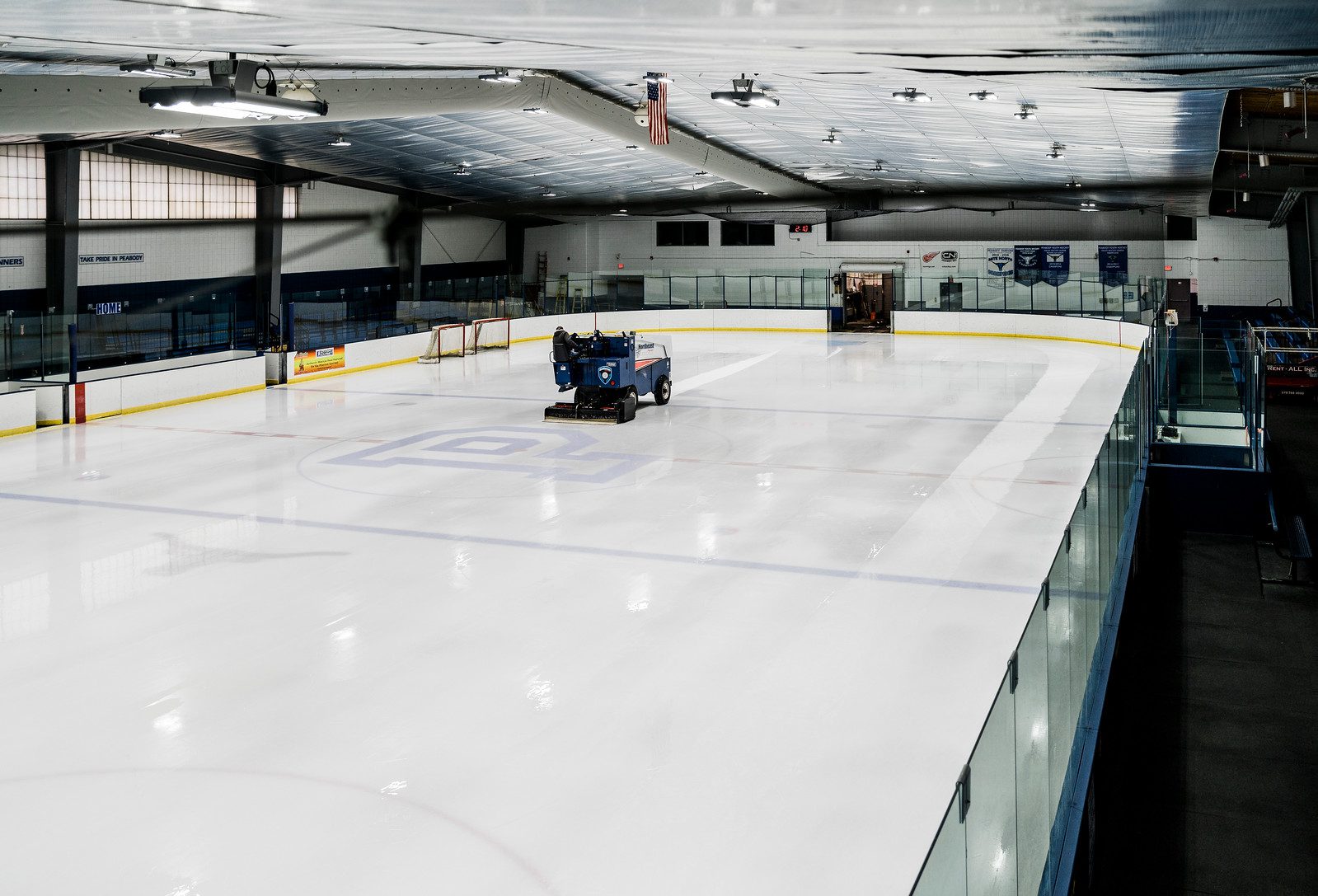PEABODY — The brass at Peabody Veterans Memorial High School announced on Wednesday that the boys ice hockey team will not play a varsity schedule for the 2021-22 season. The Tanners will instead play a junior varsity schedule.
Head coach Christian Wright stressed that this will just be for the upcoming year, describing the decision as taking one step backward to take two steps forward.
“I came in here two years ago to try and rebuild this program,” Wright said. “This is an absolutely necessary step in the progression of that.”
The Tanners have a very young team, which was a major factor in the decision.
“I’ve got seven eighth graders on my roster, three freshmen, three sophomores, two juniors, and only one senior,” said Wright. “I’ve got at least four kids (weighing) 100 pounds or less and I’ve got a number of other kids who are young, they don’t skate as well as I would like them to at the varsity level and it creates a lot of risk for a lot of them.”
The program will still practice regularly and play games against high school players; it will just be at the junior varsity level.
“At the JV (junior varsity) level, we either have big kids who don’t skate well or smaller kids who do skate well,” Wright said. “At the varsity level, you have a combination of both and that’s much more dangerous to kids who are smaller or don’t move as well.”
For Wright, this comes down to player safety and ensuring that his players can develop into the best hockey players they can be.
“Instead of risking imminent injury, which there is no way to avoid it based on my experience,” said Wright. “A lot of these kids would get hurt at the varsity level and even if it’s not a major injury, it still mentally can play a major factor in affecting how these kids progress as players. We are trying to salvage the program. What I don’t want is throwing these kids into the fire too early and having them either be mentally or physically affected over time and they don’t get to progress into the hockey players they can potentially be.
“It’s really not a realistic expectation that they would step in and not only be able to compete, I mean that would be secondary,” Wright added. “I’m talking about survival.”
When it comes down to player safety at the high-school level, Wright stated that he has had multiple conversations with USA Hockey and Massachusetts Hockey over the years about the issue.
“The problem is that everybody wants to blame referees for a game’s safety but the realistic idea is that referees can only react to what has already happened,” Wright said. “They are there to call things. Yes, they can try to go to coaches and tell you to calm things down but the onus has to fall upon coaches and the way they develop their teams and control their teams.”
Still, Wright said it is hard to control high school players, especially in a hard-hitting game such as hockey.
“The reality is in a sport like hockey where the intensity is high and the blood is flowing and the testosterone is flowing and a puck goes into the corner, those big dogs (older players), first of all they aren’t going to remember what they were told by their coach, second of all instinct kicks in and they are going to put a body on somebody,” Wright said. “There’s really nobody that is going to be able to protect these kids from the game itself. It’s not necessarily someone trying to hurt them, which can be a factor as well, but the very nature of the game, and you don’t notice it as much when the players are evenly matched in size and ability, and strength, and speed, but when there is such a discrepancy in those skill levels you really do notice it and it becomes an extremely violent game at that point.
“There’s really no way to protect and avoid imminent injury,” Wright added. “There just isn’t. You are asking 16, 17, 18-year old boys to police themselves? It’s not realistic, so I’m going to jump ahead and I’m going to put myself in the position to say ‘OK, I’m going to protect them by not allowing them to be in that situation.'”

